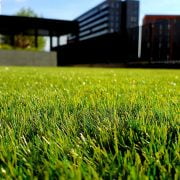Buying a new house is both an exciting and overwhelming experience. Purchasing a property is a significant investment that requires extensive research. You should consider several factors when house hunting and confirm systems checks before closing the purchase. However, most homeowners and inspectors focus on electrical appliances, siding, roofing, bathroom, and kitchen.
On the other hand, HVAC functionality and quality is the most ignored yet very significant pre-purchase item that should be evaluated extensively. The HVAC unit includes the heating, ventilation, and conditioning system that maintains the indoor air quality and comfort of your house. Below are key heating and cooling considerations to make before buying a new property:
1. System Age
The HVAC unit’s age is probably the easiest thing to determine. With the help of experts from heating companies, use the serial numbers on indoor and outdoor units to check the age of the unit online. In rare cases, the age of the air conditioner, heat pump, and furnace might differ.
While no system is too old, any air conditioner above 15 years will likely need replacement in the next five years. Even then, old systems that haven’t been maintained properly won’t function properly and are most likely to break down. While determining the system’s overall health may prove difficult, an extensive inspection of the unit can give clues.
2. Conduct a Cost-Benefit Analysis
You should do everything possible to avoid buying a new air conditioning system after spending a fortune on the house. Most homeowners don’t have the financial muscle to pay for the house and make immediate upgrades. Purchasing a new air conditioner and furnace costs thousands of dollars. This is very stressful, especially if you have exhausted your budget on the mortgage.
You should conduct a cost-benefit analysis of the unit. However, there are exceptions to a strict cost-benefit ratio. Old homes are sometimes sold with incredible offers that you can’t ignore. You should consider such if the cost of the house and a new heating and cooling unit is within the overall budget. However, you should ensure the value of the house and the costs of upgrading the system make financial sense.
3. System Maintenance History
Apart from system age, you should also check the maintenance history. As mentioned, heat pumps and air conditioners should be replaced after 10 to 15 years. Furnaces and boilers should be considered for replacement after 15 years. Even then, regular maintenance, at least bi-annual, is important in extending the lifespan of HVAC systems.
Ideally, property sellers should replace outdated systems when staging their properties. If you come across an old system while house hunting, ask the seller for maintenance and repair records of the unit. Annual maintenance ensures that the system remains covered by the manufacturer’s warranty. Regular maintenance extends the unit’s lifespan, improves energy efficiency, and eliminates the need for constant repairs.
HVAC technicians often leave maintenance tickets after servicing these units. Most AC manufacturers require that homeowners keep these records as proof of maintenance to verify their warranty. Unfortunately, maintenance records do not provide enough information. Consider scheduling a professional inspection to assess the unit’s health.
4. HVAC System Efficiency
Heating and cooling systems account for more than half of your property’s energy consumption. As such, you should ensure that the unit is energy efficient before purchasing the property. Energy-efficient HVAC units significantly save on energy costs. Below are a few measures of HVAC system energy efficiency:
- Air conditioner efficiency – The Seasonal Energy Efficiency Ratio measures the energy efficiency of your system’s air conditioner. Energy-efficient air conditioners have a higher SEER value.
- Furnace efficiency – Measured by the Annual Fuel Utilization Efficiency rating. Furnaces with a high AFUE rating are energy-efficient. For instance, a 90% AFUE-rated furnace uses 90% of energy for heating.
- Heat pump efficiency – Rated using the Heating Seasonal Performance Factor (HSPF). The higher the HSPF factor, the more energy-efficient the heat pump is.
While these factors are important indicators of the unit’s HVAC efficiency, keep in mind that HVAC energy efficiency decreases with age. You should schedule a professional HVAC inspection to better understand your unit’s energy efficiency.
5. Location of Indoor and Outdoor Units
You should also use the location of indoor and outdoor units to negotiate the property value. For instance, if the indoor unit is in the attic, it can leak and damage the ceiling. HVAC units with indoor units located in the basement will less likely cause property damage.
On the other hand, outdoor condensers positioned next to bedroom windows can be noisy. Similarly, ensure the outdoor unit is elevated from the ground if the property is in a flood-prone area.
Endnote
You should also consider HVAC equipment sizing, air filters and ductwork condition, thermostat technology, and the refrigerant being used when inspecting your new property’s HVAC system. HVAC systems are complicated, and you should hire expert help to make these observations.














[…] spend so much money on energy that powers our air conditioning and heating. It is the source of a lot of environmental damage. Not only should you make sure that the […]
[…] spend so much money on energy that powers our air conditioning and heating. It is the source of a lot of environmental damage. Not only should you make sure that the […]
[…] spend so much money on energy that powers our air conditioning and heating. It is the source of a lot of environmental damage. Not only should you make sure that the […]